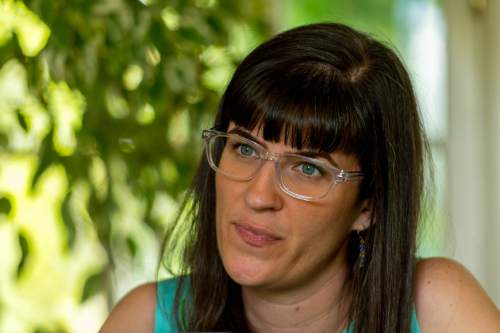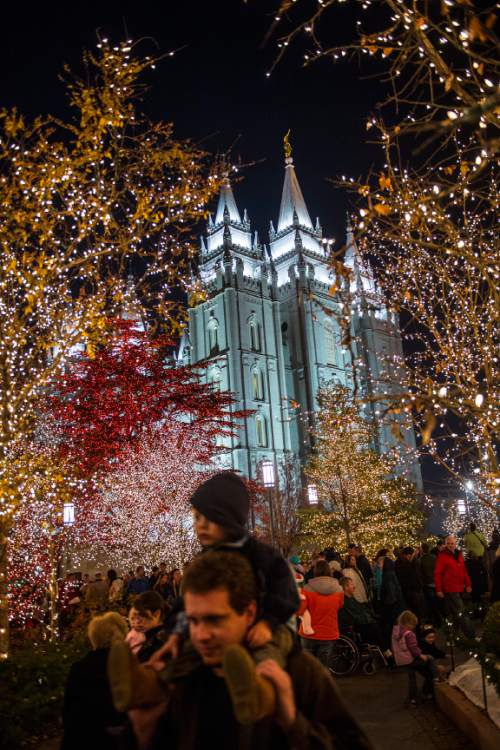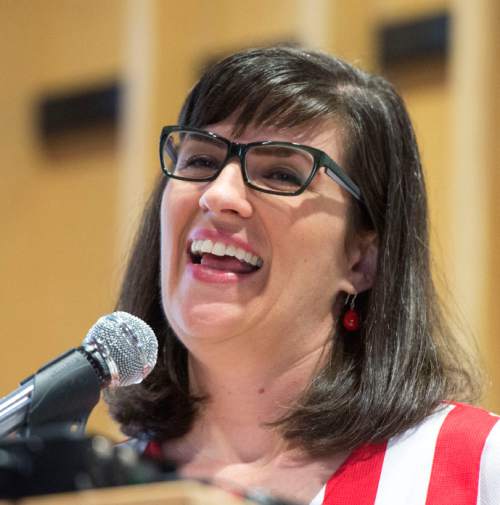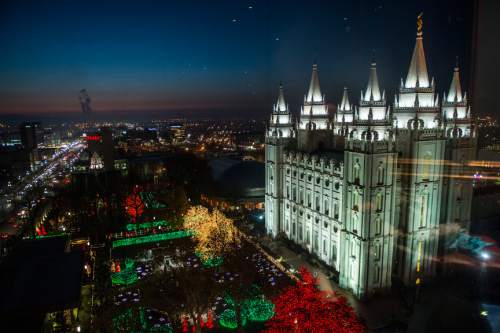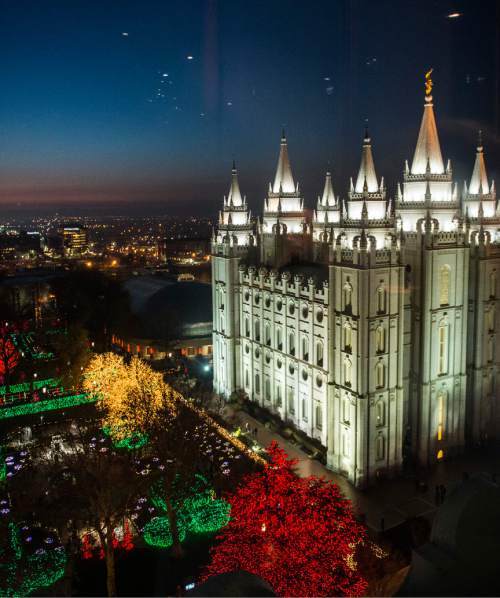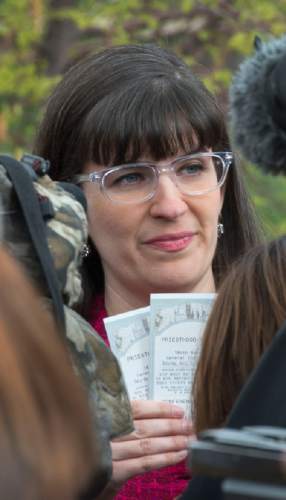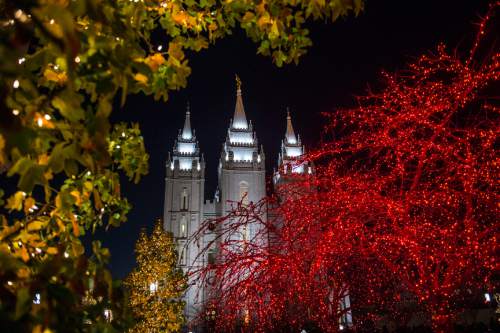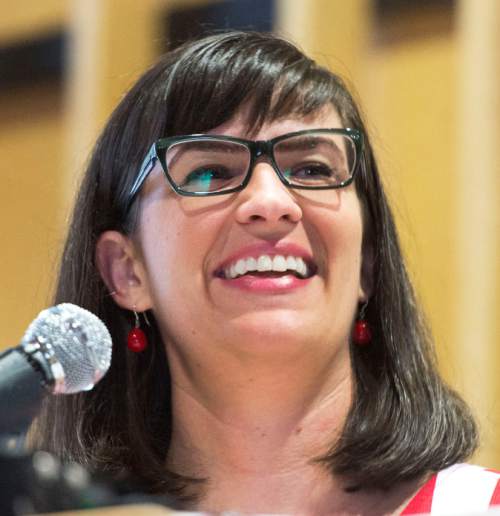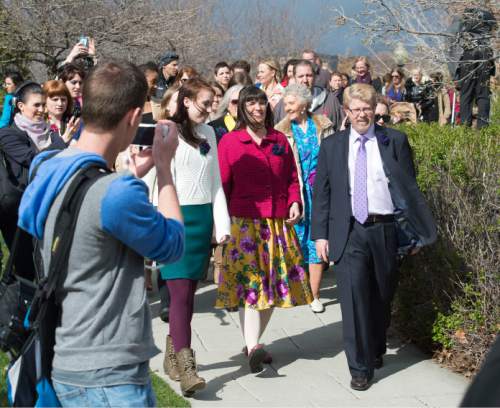This is an archived article that was published on sltrib.com in 2014, and information in the article may be outdated. It is provided only for personal research purposes and may not be reprinted.
Feminist Kate Kelly's excommunication from the LDS Church in June may have been a local decision, but Mormon officials knew its impact, given all the media attention, would reach members across the nation, if not the globe.
So this week the Research Information Division of The Church of Jesus Christ of Latter-day Saints emailed a survey to see how concerned members — or their family, friends and acquaintances — are about "the roles, responsibilities or treatment of women in the church," and what they believe is the faith's definition of "apostasy."
The survey went to "1,000 randomly selected men and women who are active members of the church from the United States," LDS Church spokesman Dale Jones said Wednesday in a statement. "Participation is voluntary and individual responses are anonymous and confidential."
In a string of questions, the survey tries to gauge, among other things, how troubled respondents are by "public issues or controversies" within Mormonism during the past six months, in what setting members feel most comfortable expressing "doubts or concerns about church doctrines or practices" — if at all — and whether General Conference messages, LDS First Presidency statements or LDS Newsroom articles on the faith's website proved "helpful."
The questionnaire includes blank spaces to provide lengthier answers to many questions.
Kelly, who founded Ordain Women to push for female inclusion in the all-male Mormon priesthood, led hundreds of women as they walked to Salt Lake City's Temple Square last October and again this past April to request standby tickets to the priesthood session of the church's semiannual General Conference.
Each time, the women were turned away.
In late June, the feminist was disciplined by her lay LDS leaders in Virginia for "conduct contrary to the laws and order of the church."
One of the survey's question asked respondents to assess the church's response to Ordain Women's public effort and to members who "publicly expressed doubts and questions about church doctrines."
Some feminists applaud the move to query Mormons on their attitudes and feelings on these knotty issues.
"We are always pleased to see our leaders showing interest in the needs and concerns of the women of the church," the Ordain Women executive committee said in a statement. "We look forward to a future where our sisters work with equal power and authority with the brethren."
Such research is not unusual in the LDS Church, Jones said.
"Conversations between members and leaders occur often and in a variety of forms," Jones said. "Surveys, such as this, which have been held periodically over many years, are meant to help leaders better understand and minister to those they serve."
The church even spells out its research guidelines in "Handbook 2: Administering the Church," which LDS leaders follow to run Mormon congregations worldwide.
"The only authorized research agency of the church is the Research Information Division of the Correlation Department," the publication states. "Representatives of this department use questionnaires and interviews to obtain information on issues of concern to general authorities. When church-authorized researchers contact members, they provide the church's toll-free number and a contact name at headquarters. In addition, they always allow the respondent the option of not answering any or all of the questions on a survey."
In April, for instance, the LDS Church sought responses on marriage and same-sex attraction from Mormon "millennials" (those born between 1980 and 2000) at Brigham Young University and those who attended a Young Single Adult Mormon congregation in Utah.
Such research is typically for internal use only. The results are not made public.
"It's a very good idea for the church to assess how their actions are impacting the general membership of the church," said Lisa Butterworth, founder of Feminist Mormon Housewives. "However, I think it's important that we remember that Christ is the good shepherd who cared about the flock, but also every individual sheep. I hope regardless of the results of the survey, we see the church reach out to the women who are hurting and feeling marginalized both by Kate's excommunication and by the lack of meaningful decision-making opportunities for women in the church."
Twitter: @religiongal —
What is being asked?
Some of the questions in the LDS Church's survey about women, doctrinal issues and sources of information:
• As you understand it, what is the church's definition of "apostasy"?
• Has the public discussion of these high-profile disciplinary councils affected your thinking about any issues? If so, which issues, and how?
• How concerned are you personally about the roles, responsibilities or treatment of women in the church?
• In the past six months, have you seen, heard or read anything regarding the public debate about the desire of some to ordain women to the priesthood in the church?
• What would you say is your primary source of information regarding the ordination of women to the priesthood?
• In your opinion, how well do general authorities understand the concerns of the following types of members? (members who are concerned about gender equality in the church; members who feel uncomfortable expressing doubts or questions regarding LDS doctrines or core beliefs; members who are concerned about church discipline.)


